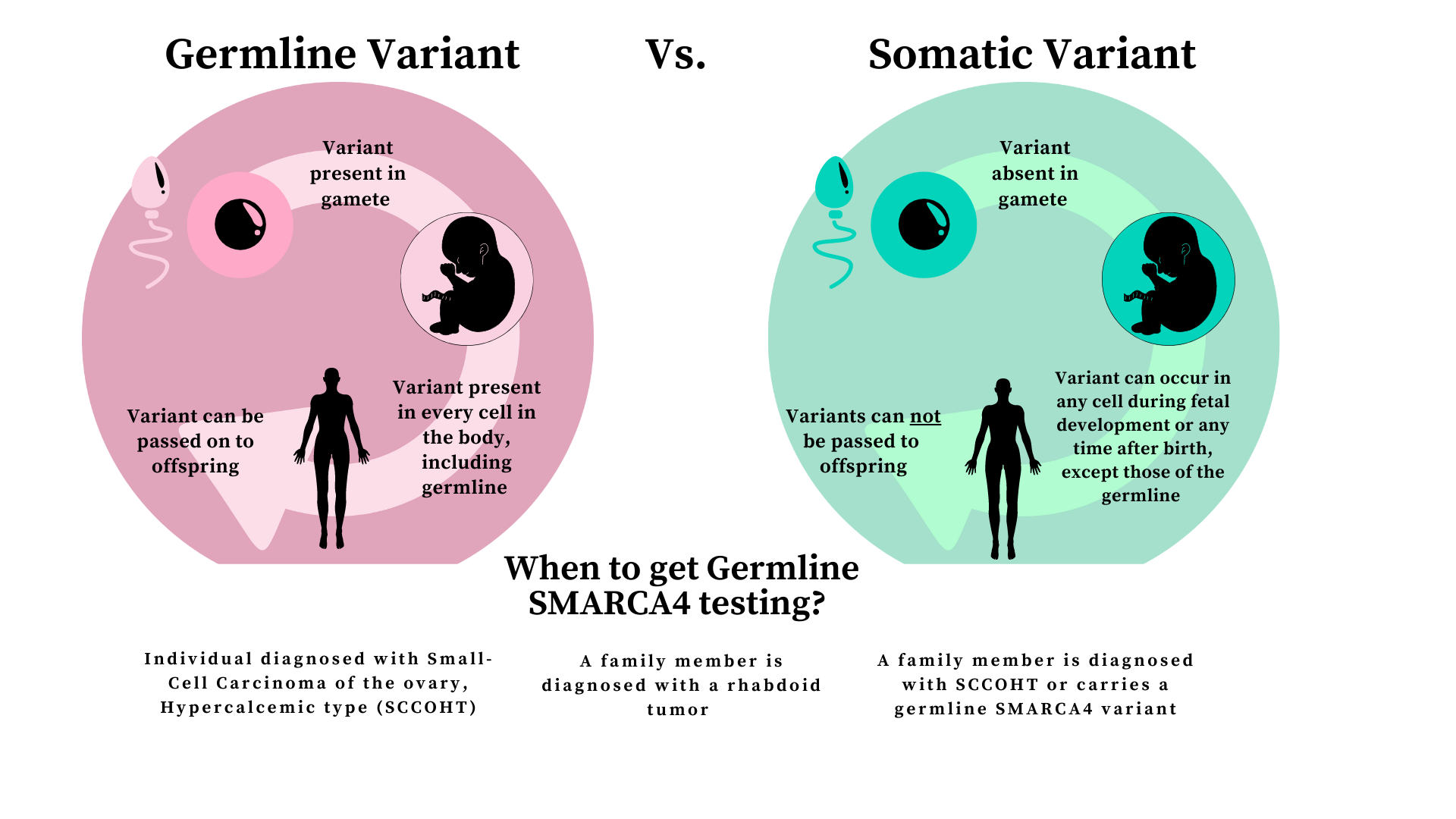ATRT/MRT
Atypical Teratoid Rhabdoid Tumor (AT/RT) and Malignant Rhabdoid Tumor (MRT) are part of the rhabdoid tumor family. ATRTs are rare aggressive brain tumors that most commonly occur is children below the age of three, while MRTs occur extra-cranially and may occur in older children as well. These are most often caused by germline or somatic variants in the SMARCB1 gene, another SWI/SNF complex gene, but can be caused by pathogenic variants in SMARCA4. When they are due to variants in SMARCA4, they tend to be more aggressive and occur in younger children.
CSS
Coffin-Siris Syndrome is a developmental disorder that can cause a variety of learning, developmental, and growth differences. It is caused by pathogenic variants in different SWI/SNF genes, including SMARCA4. This disorder is often diagnosed in infancy and is usually caused by de novo pathogenic variants, meaning that they are not inherited from either parent, but occur only in the patient. These patients do not usually develop cancers, as the variants that cause CSS and SCCOHT are often different.
Unaffected carriers
While pathogenic variants in SMARCA4 increase the risk for SCCOHT, ATRT, and MRT, many people who have a pathogenic cancer-related SMARCA4 variant will never be affected with a tumour. This is particularly true for males, as there is no risk for ovarian cancer. However, these people are able to pass on these variants to their offspring, who have a 50% chance of inheriting the variant and may develop a cancer. The risk of cancer development among those with pathogenic SMARCA4 remains unknown, although the risk decreases with age.
